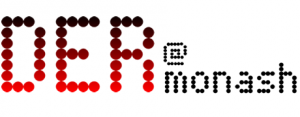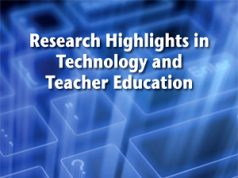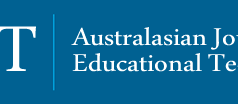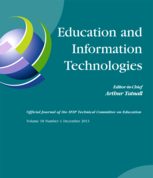Author:
Scott Bulfin
Graham Parr
Natalie Bellis
This text is adapted from a longer journal article by the authors: Parr, G., Bellis, N. & Bulfin, S. (2013 in press) Teaching English teachers for the future: Speaking back to TPACK. English in Australia, 48 (1).
 Introduction
Introduction
Technological Pedagogical Content Knowledge – or ‘TPACK’ for short – has emerged over the past five years as a popular conceptual framework for understanding the role of digital technology in educational settings. Largely associated with the work of Mishra and Koehler (2006, 2008), the general principle of TPACK is simple enough – i.e. that there is a “dynamic equilibrium” between (i) subject or content knowledge (CK) (ii) pedagogical knowledge (PK) and (iii) a knowledge of technology (TK). Yet amidst the rush to adopt this ‘new’ understanding, we argue that it is time to step back from the hype, and develop an awareness of the tensions and contradictions implicit in the TPACK model. In particular, we are concerned about TPACK’s compartmentalisation and ‘packaging up’ of professional knowledge of teaching and ICT knowledge, as well as the framing of pedagogy as distinct from ‘content knowledge’.
Unpacking TPACK
Mishra and Koehler (2006, 2008), in claiming authorship of TPACK, acknowledge the clear genealogical connections with Shulman’s (1986, 1987) notion of pedagogical content knowledge (PCK). PCK emerged during the 1980s as a dominant discourse in US science teacher education, where the initial focus was on establishing a stable and universal knowledge base for science teaching. From there, it was a matter of exploring ways for teachers to ‘acquire’ that knowledge, and then to devise teaching procedures for transferring the content knowledge to students (cf. Ellis, 2007). Since then, PCK has come to influence many subject/discipline/curriculum areas and many western educational systems across the world. Certainly in countries such as Australia, PCK’s conception of teaching knowledge integrating its different constituent elements (typically represented in Venn diagrams) has been important for many practitioners and bureaucrats in recent years.
One of the conceptual concerns we have with PCK and TPACK is the notion of apparently discrete bodies of content knowledge and pedagogical knowledge, with the presumption that expertise for subject content and pedagogy lies in different communities. In 1986, Shulman’s conceptualisation of PCK portrayed content knowledge as created by authoritative bodies outside of the teaching profession, and pedagogical knowledge as created within the teaching profession. Following Shulman’s original formulation, further work by Grossman, Wilson and Shulman (1989) made a similar distinction: “Scholars create new knowledge in the discipline. Teachers help students acquire knowledge within a subject area” (p. 24). And so, having assumed that discipline knowledge is something that is developed and exists as an entity outside of schooling, PCK characterises teachers’ work as “representing and formulating the subject that make it comprehensible to others” (Shulman, 1986, p. 9). Like PCK, the TPACK framework seeks first to separate CK, PK and TK, then to integrate them.
The whole project of establishing discrete knowledge sets, before subsequently integrating them, Shulman (1987) argued, was crucial in developing professional standards for teachers. It allowed centralised bodies to categorise and codify teachers’ knowledge into unproblematic ‘chunks’. This apparently common sense approach to identifying neatly bounded knowledge chunks is seductive to those wishing to articulate discrete professional ‘standards’ of what teachers need to know and be able to do, which teachers in schools are then obliged to tick off in the process of demonstrating their professional competence.
Such common sense would be compelling, were it not for fundamental flaws in the logic. There are at least four of these that we outline here:
-
It assumes that any ‘content knowledge’ drawn from outside the profession is neatly bounded, unchanging and widely agreed upon by a homogeneous academy for whom knowledge in their field is not open to serious or ongoing challenge and change
-
It assumes there is a singular and unchanging version of this ‘content knowledge’ that exists outside the profession, and that such knowledge will be readily embraced by teachers who apparently have no previous knowledge of other paradigms, or who have no previous experience that might prompt them to challenge or critique the dominant paradigm of knowledge.
-
It fails to appreciate that in the richest processes of teaching and learning, knowledge is engaged with, interpreted and reinterpreted, challenged and built upon. New knowledge is often generated dialogically through teaching and learning (cf. Mercer 1995; Wells, 1999), knowledge which could never be found in reified bodies of thought that supposedly exist outside of schooling.
-
It fails to understand the importance of language in all knowledge building and educative processes. In particular, it fails to understand the complex mediating role of language in the production, communication, interpretation of and engagement with knowledge, and the influence of culture and history in these interrelated processes.
These are all substantive criticisms that clearly require further thought beyond a short blog posting. Yet extending this critique, Ellis (2007, p.1) points to a broader assumption embedded in some approaches to teacher education which operate under “an objectivist view of [professional] knowledge as a static and universal commodity that could be fragmented, accumulated and transferred”. While Ellis does not name PCK/TPACK, the connections are clear enough. Objectivist views of knowledge are driven by a desire to compartmentalise and finalise knowledge into stable and static ‘packages’. These packages rely upon an assumed consensus amongst and between academic and professional worlds about disciplinary knowledge. This assumed consensus underpins calls in the US and other countries for common ‘core’ standards and for standardisation of practice.
The value of adding T to PCK?
There is a sense, therefore, that TPACK replicates the structural limitations of the PCK model, yet disguises them with the allure of new digital technologies. At a time when the world is rapidly changing, when knowledge is changing, and when developments in ICT are proliferating, it is apparently reassuring to imagine a parallel universe where there is reassuring evidence of stasis. In this parallel existence, the knowledge that matters is knowledge of the past, knowledge that denies the complexity and contested nature of the present. Many ICT developments are valuable in this parallel world because they can provide access for teachers to authoritative and stable bodies of thought and knowledge. This content knowledge can then be effectively transferred, via various ICT and media devices and platforms, ‘learning management systems’ and applications, to all students irrespective of context, culture and language. Accountability regimes such as standardised tests can easily check to see whether this knowledge has been transferred to students. Teachers’ competence can be checked off in lists of professional standards that are constructed in direct relation to reified bodies of content knowledge and pre-determined ‘uses’ of ICT that all teachers should know and be able to use. In this parallel world the logic of TPACK is reassuring.
However, we are not reassured by the logic of TPACK. Indeed, one can look in vain for consistency in the theory of Mishra and Koehler’s TPCK/TPACK framework. At different moments they proclaim that theirs is a “new approach toward teacher knowledge” (Mishra & Koehler, 2008, p. 11), and “a new way of thinking about technology” (Mishra, Koehler & Kereluik, 2009, p. 5), and yet elsewhere they concede it is not so new after all: “We do not argue that this TPCK approach is completely new” (Mishra & Koehler, 2006, p. 1025). In one publication, they appear to be very interested in the role of language in the development of technological pedagogical content knowledge. They claim TPACK’s understanding of technology represents a “new literacy”, “emphasis[ing] the role of the teacher as a producer (as designer), away from traditional conceptualisation of teachers as consumers (users) of technology” (2008, p. 11).
Yet there seems to be no other recognition (in this paper or others they have published) of the role of language or discourse or discourse communities in knowledge or knowledge production. Their descriptions of TPCK/TPACK range from offering guidance for looking at the “specificity of the[] relationships between content, pedagogy and technology” (2006, p. 1026), to offering particular “pedagogical techniques that apply technologies in constructive ways to teach content in differentiated ways according to students’ learning needs” (2008, p. 3), to a critique of national technology standards that “emphasise [only] current versions of hardware and software” (2006, p. 1031), to suggestions for dealing with the changing nature of knowledge and diverse student needs: teachers should just “experiment[] with newer pedagogical techniques” (2008, p. 13). Interestingly, in a recent review of TPCK/TPACK, Angeli and Valanides (2009, p. 157) criticise its lack of clarity in delineating knowledge fields. The boundaries between some components of TPCK, they say, are “fuzzy, indicating a weakness in accurate knowledge categorisation or discrimination”.
What Niess (2011) calls “the TPACK struggle” describes the efforts of so many practitioners and researchers to clarify these boundaries, and thus enable them to accurately measure the improvements in that one knowledge domain they had achieved through a particular intervention. This is not a struggle that we think is particularly worthwhile. In one sense we are critical of the conceptual looseness of TPCK/TPACK, but for us the solution is not to tighten up that looseness. In our view time might be better spent seriously engaging with the flaws we have identified above.
Conclusions
While many people reading this blog will already be well aware of its limitations, the real dangers occur when ideas such as TPACK get commandeered, packaged and marketed by bureaucratic organisations. With governments, corporations and other educational organisations all beginning to pick up on the idea of TPACK, reductive practices can become reified in ways that restrict other possible ways of knowing and practising, especially for new teachers, for whom current conditions can seem natural—as if ‘it has always been this way’.
Of course, the ‘ready-made … body of authoritative thought’ (Voloshinov, 1986, p. 78) embodied in TPACK and other standards-based ‘initiatives’ is seductive in its simplicity. Typically, such neatly packaged initiatives promise solutions to the challenges of the work that goes on in school classrooms and university workshops and lecture theatres that have eluded all others before them. The simplicity of educational initiatives can be a powerful selling point, and yet it is where the greatest danger lies for teachers and researchers. Even when, or especially when, they are dressed up as new technologies, we would argue that such initiatives are dangerous if they are allowed to take hold, and limit the way that teachers and teacher educators can talk about, understand and imagine their classrooms.
As such, there is a clear need for education researchers to look for ways to provide space and resources for teachers in schools to work collaboratively with teacher educators and pre-service teachers, in ongoing professional networks, to speak back productively to standards-based rhetoric. There are certainly many useful and constructive debates to be had around issues of technology, pedagogy, curriculum and knowledge. The TPACK framework (and more specifically the circus that is fast growing up around it) is perhaps not the best place to begin.
References
Angeli, C., & Valanides, N. (2009). Epistemological and methodological issues for the conceptualisation, development and assessment of ICT-TPCK: Advances in technological pedagogical content knowledge (TPCK). Computers and Education, 52(1), 154-168.
Ellis, V. (2007). Subject knowledge and teacher education: The development of beginning teachers’ thinking. London: Continuum.
Grossman, P., Wilson, S., & Shulman, L. (1989). Teachers of substance: Subject matter knowledge for teaching. In M. C. Reynolds (Ed.), Knowledge base for the beginning teacher (pp. 23–36). Oxford, UK: Pergamon Press.
Mercer, N. (1995). The guided construction of knowledge: Talk amongst teachers and learners. Clevedon, UK: Multilingual Matters.
Mishra, P., & Koehler, M. (2006). Technological pedagogical content knowledge: A framework for teacher knowledge. Teachers’ College Record, 108(6), 1017-1154.
Mishra, P., & Koehler, M. (2008). Introducing pedagogical content knowledge. Paper presented at Annual Meeting of the American Educational Research Association, New York City, March 24-28, 2008.
Mishra, P., Koehler, M., & Kereluik, K. (2009). The song remains the same: Looking back to the future of educational technology. TechTrends, 53(5), 48-53.
Niess, M. (2011). Investigating TPACK: Knowledge growth in teaching with technology. Journal of educational computing research, 44(3), 299-317.
Shulman, L. (1986). Those who understand: knowledge growth in teaching. Educational researcher, 15(2), 4-14.
Shulman, L. (1987). Knowledge and teaching: Foundations of the new reform. Harvard Educational Review, 57(1), 1-22.
Voloshinov, V. (1986). Marxism and the philosophy of language. A. Matejka & I. Titunik (Transl.). London: Harvard University Press.
Wells, G. (1999). Dialogic inquiry: Towards a sociocultural practice and theory of education. Cambridge: Cambridge University Press.







